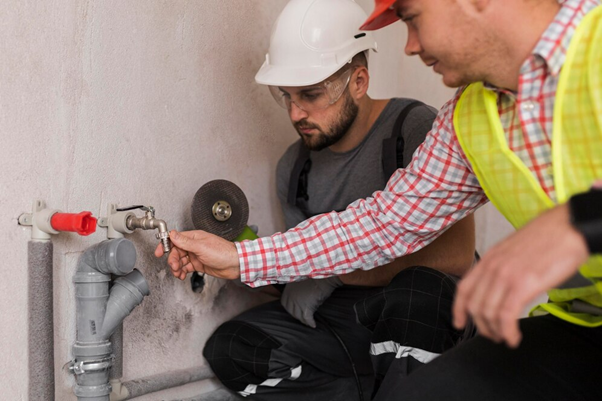Efficient waste management is crucial for both residential and commercial properties. A key aspect of this involves integrating septic tank system pumping with on-site project plumbing setup. Properly managing these components ensures not only the effective disposal of waste but also the longevity and efficiency of the entire plumbing system. This article explores the importance of septic tank system pumping and how it harmonizes with on-site project plumbing setup for optimal waste management.
Understanding Septic Tank Systems
The Role of Septic Tanks
Septic tanks play a pivotal role in waste management, particularly in areas not connected to centralized sewer systems. These underground structures treat wastewater from households and businesses, separating solids from liquids and allowing bacteria to break down organic matter. Over time, sludge accumulates at the bottom of the tank, necessitating regular septic tank system pumping to maintain functionality.
Importance of Regular Pumping
Regular septic tank system pumping is essential to prevent overflows, blockages, and system failures. Without timely pumping, solids can clog the drain field, leading to costly repairs and potential health hazards. Experts recommend septic tank pumping every 3 to 5 years, depending on the tank size and household usage. By incorporating regular pumping into your waste management routine, you can extend the lifespan of your septic system and avoid unpleasant surprises.
Integrating Septic Tank Pumping with On-Site Project Plumbing Setup
Designing an Efficient Plumbing System
An efficient on-site project plumbing setup is the backbone of effective waste management. When designing a new plumbing system, it is crucial to consider the integration of septic tank components. Proper planning ensures that wastewater flows seamlessly from the source to the septic tank, reducing the risk of leaks, backups, and contamination.
Key Considerations for Plumbing Setup
- Pipe Placement and Slope: Proper pipe placement and slope are essential for gravity-based flow systems. Pipes should be laid at a slope that allows waste to flow smoothly into the septic tank. Incorrect slopes can lead to slow drainage and increased pressure on the system.
- Ventilation: Adequate ventilation is crucial to prevent the buildup of harmful gases within the plumbing system. Properly placed vents ensure that gases are safely released, maintaining a healthy and efficient waste management environment.
- Accessibility: Designing the plumbing setup with accessibility in mind simplifies future maintenance and pumping tasks. Easy access to cleanouts and septic tank lids can significantly reduce the time and effort required for regular maintenance.
Benefits of an Integrated Approach
Enhanced System Longevity
Integrating septic tank system pumping with an efficient on-site project plumbing setup can significantly enhance the longevity of your waste management system. Regular pumping prevents sludge buildup, while a well-designed plumbing setup ensures that waste flows efficiently, reducing wear and tear on the system.
Cost Savings
An integrated approach to waste management can lead to substantial cost savings over time. Preventative maintenance, such as regular pumping, helps avoid costly repairs and emergency interventions. Additionally, an efficient plumbing setup reduces water consumption and energy usage, contributing to overall cost efficiency.
Environmental Protection
Proper waste management is essential for environmental protection. Regular septic tank pumping prevents overflow and contamination of soil and water sources. Combined with a well-designed plumbing system, this approach minimizes the risk of leaks and spills, safeguarding the environment and public health.
Practical Tips for Homeowners and Builders
Regular Maintenance Schedule
Homeowners and builders should establish a regular maintenance schedule for septic tank system pumping and plumbing inspections. Keeping a detailed record of maintenance activities ensures that no task is overlooked and that the system remains in optimal condition.
Professional Assistance
Hiring professional plumbers and septic system experts is crucial for both installation and maintenance. Professionals have the knowledge and experience to design efficient plumbing systems, perform regular inspections, and carry out necessary repairs. Their expertise ensures that the entire waste management system operates smoothly and effectively.
Sustainable Practices
Incorporating sustainable practices into your waste management routine can further enhance efficiency. Consider installing water-saving fixtures, using environmentally friendly cleaning products, and being mindful of what goes down the drains. These small changes can significantly impact the overall health and longevity of your septic system and plumbing setup.
Conclusion
Efficient waste management requires a comprehensive approach that integrates septic tank system pumping with an on-site project plumbing setup. By understanding the importance of regular pumping, designing an efficient plumbing system, and implementing sustainable practices, homeowners and builders can ensure the longevity, cost-effectiveness, and environmental safety of their waste management systems. Taking proactive steps today will prevent future problems and contribute to a healthier, more sustainable living environment.








Comments